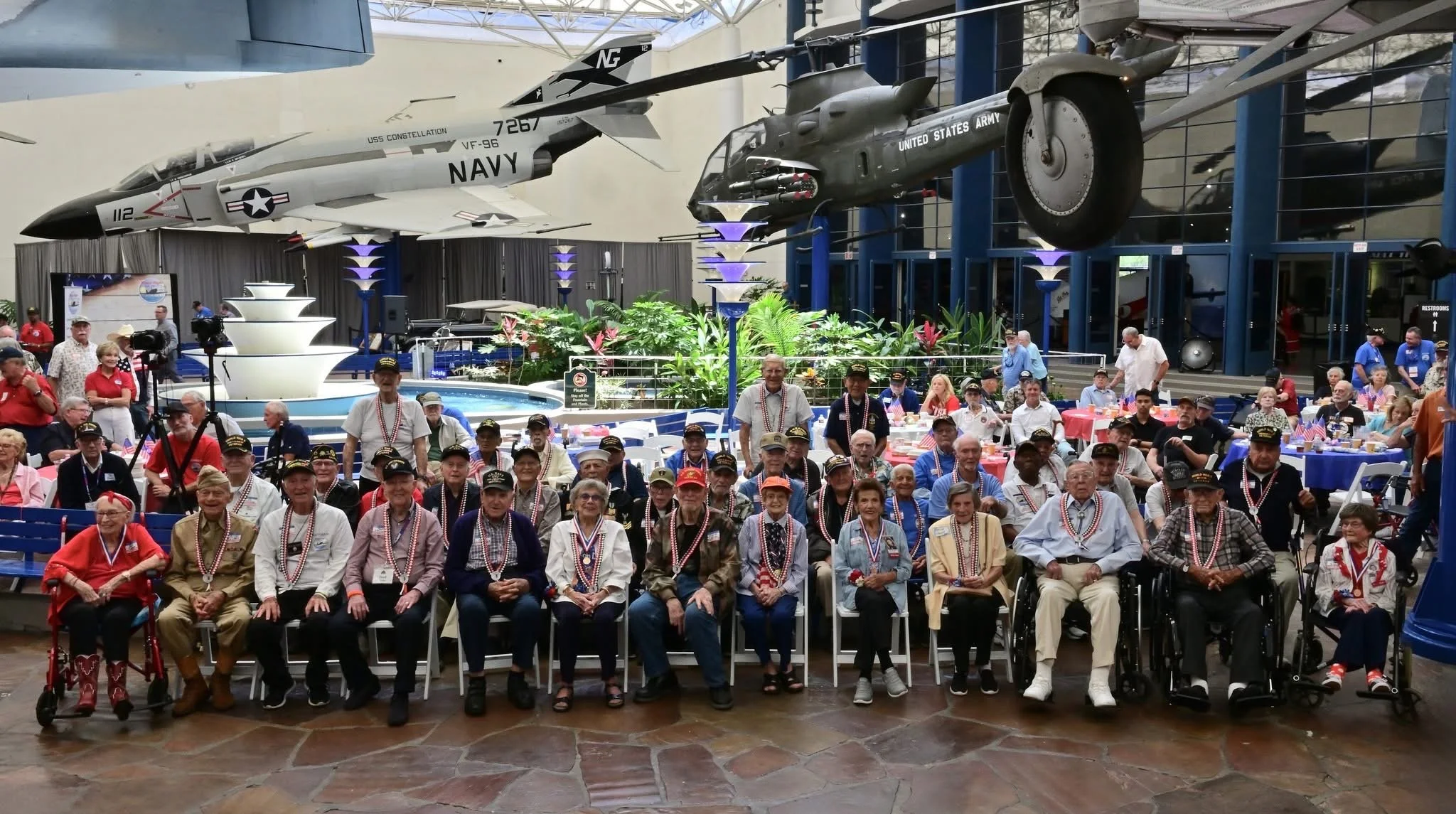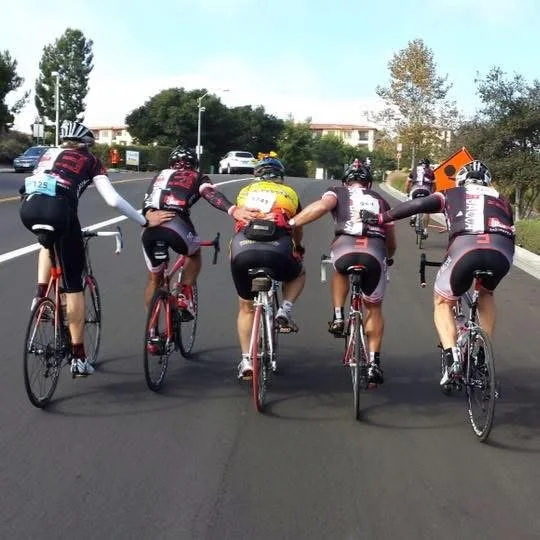The story of Dee Folse: Where Strength Meets Purpose
Dee in 2016 after a 50-mile mountain bike ride he’s done annually since 2004. He’d never missed a ride and completed this one despite being at the height of his illness. He barely recognizes the man beaming in this photo, because he remembers being miserable, both physically and emotionally, as Lyme+ turned his favorite ride of the year into a death march. “Putting ego in front of health is not smart. I don’t regret [this ride], but I paid a high price for finishing”.
Dee Folse is a longtime San Diego resident, a lifelong philanthropist, an endurance athlete, a husband, father, and an activist fighting against the spread of Lyme & tick-borne disease (Lyme+). He has a zest for life that’s truly infectious, and it’s this energy that has not only carried him through his darkest, sickest times but has also driven him to become a tireless advocate—educating others on the risks of Lyme+, championing prevention, and ensuring no one facing illness has to walk that road alone. While Lyme has taken a great deal from him, it has also given him an increased sense of purpose and a profound appreciation for life itself.
Dee has always had a strong sense of identity, shaped by the way he spent his time. He prided himself on being very physically and mentally fit. For 41 years, he held the same job as an elevator technician, and when he wasn’t working or with his family, he was cycling, surfing, hiking, or playing volleyball. These activities came naturally to him, which is why it was so jarring when they started to feel extraordinarily difficult. In 2012, his first notable symptom appeared: severe fatigue. He recalls showing up for bike rides and barely being able to get out of his truck, let alone complete the ride with the ease he usually could. At work, tasks that used to take five minutes now took two hours. He even had to ask Siri for directions home in the neighborhood he had lived in for 40 years. A fighter by nature, Dee pushed through these symptoms for nearly two years, until he started to fear that his decreasing capabilities at work could put himself and others at risk. On January 31, 2014, he called his boss, explained that something was very wrong, and requested two weeks off to address his health. That day would mark the end of his long career.
Thus began a revolving door of doctors and misdiagnoses. A neurologist sent him to a sleep clinic, where he was diagnosed with moderate sleep apnea and instructed to purchase a CPAP machine. Something didn’t feel right about this path forward, so instead of just following instructions, Dee kept looking for answers. By this point, he had developed difficulty breathing, which he describes as feeling like he was “starved for air”. He saw a pulmonologist, who ran a number of tests before reporting that his lung function was completely fine. He was sent back to a neurologist, to a cardiologist, given CT scans and MRIs, checked for signs of previous stroke, for head trauma. He was treated for MS for three months. He could feel each doctor pushing him out the door, fearing he was too high risk, not knowing what was wrong or how to help. A nurse eventually handed him a journal, encouraging him to write down his experiences. Looking back, he calls it an “incredibly depressing window” into what he endured. He wrote things like, “I can’t believe I can feel this bad and still be alive.” It was this experience that fuels his dedication to Lyme education—he wants as few people as possible to feel the same despair.
After visiting ten doctors with no answers, Dee embarked on a bike ride with an old friend, who confronted him about his declining reliability as a friend and an athlete. Feeling both embarrassed and seen, Dee delved into his symptoms, outlining his brain fog, difficulty breathing, and memory loss. His friend, who grew up in Connecticut, asked if he had been tested for Lyme disease. Dee could hardly believe there was a test he hadn’t taken, and didn’t know when he could have been bitten. “I’m not a world traveler,” Dee shares, recalling how he’d tried to trace his steps back to the bite. He undoubtedly contracted his infection locally, in San Diego—a reminder that Lyme+ can strike close to home, even in areas not considered high-risk.
Dee went to see a Lyme-literate immunologist who gave him the Western Blot test, quickly confirming that he had Lyme disease and Rocky Mountain Spotted Fever, then later diagnosing him with Bartonella. Outside of a short prescription of doxycycline, Lyme+ treatment is not covered by insurance, and it gets astronomically expensive out of pocket. The doctor offered to code his treatment as the more commonly covered Fibromyalgia, a chronic condition that many with Lyme+ suffer from, characterized by widespread musculoskeletal pain, fatigue, and other symptoms. Dee was put on a low dose of doxycycline, then later increased the dosage and added supplements. Due to the Herxheimer reaction that typically comes with treating Lyme, not only was Dee not improving, his condition was worsening. With a “herx” reaction, as it’s knowingly referred to in the Lyme community, things get worse before they get better. He lost twenty pounds, and was going 3-4 days without being able to get out of bed. There was no respite–his highs were barely above his lowest lows. He requested a more aggressive treatment plan, and began costly rounds of IV Rocephin through a PICC line, which he often had his son administer at home to avoid more costly insurance challenges. The process was grueling, with multiple six-week courses separated by breaks and line removals to avoid complications with the PICC line. Eventually, he developed a latex allergy that forced him to halt the PICC line treatments, but it seemed the medicine had finally started making headway. His labs improved, and he started to feel better. He began getting back into the activities he loves.
Every Wednesday morning, Dee heads to Del Mar Integrated Health for a Myers’ cocktail with glutathione and other vitamins. He’s been able to manage the costs of his expensive functional medicine necessities by coding his treatments according to what will be covered by insurance.
Going through something like this shrinks your world. Dee’s support system, however, remained steadfast. When his illness began, he was going through a divorce, and he humorously recalls a doctor at this time advising him to live a stress-free life. Even after the divorce, his ex-mother-in-law was one of his greatest allies—attending doctor’s appointments, driving him when needed, and taking detailed notes so nothing was missed. His other greatest supporter is his wife, Leeann, the love of his life, whom he met at the height of his illness and credits with much of his recovery. “Love really is the most powerful drug,” he says. Oftentimes, Leanne knows he’s having a flare-up before Dee knows himself. This close-knit support system not only helps him navigate his illness but also gives him the strength and resilience that would fuel his advocacy and service to others.
Even while managing these challenges, Dee’s commitment to giving back never wavered. Philanthropy isn’t just something Dee does—it’s who he is, woven into every aspect of his life and work. A longtime volunteer at the YMCA, he has competed in the Bike MS fundraiser 25 times with a team he’s honored to be a part of. He is a passionate patriot, coming from a proud lineage of service: his father served in the US Air Force during the Korean War, and both of his grandfathers served in World War I and World War II. When his ex-mother-in-law’s father, a World War II veteran, was invited on the Honor Flight—a nonprofit that transports U.S. veterans to Washington, D.C., to visit memorials honoring their service (at no cost to the veteran)—he asked Dee to accompany him. That marked the first of Dee’s 26 (and counting) Honor Flights as a volunteer board member and team leader. Balancing this deep commitment to service with the ongoing challenges of Lyme disease requires constant discipline and self-awareness.
Dee among World War II Veterans for Honor Flight’s annual Spirit of 45 event. “There is no whining in the presence of heroes. Experiences like this keep a person going. We can never do enough for our vets and we will never stop trying”.
Today, Dee maintains his health with weekly Myers cocktails, glutathione infusions, and vigilant lifestyle monitoring. He describes feeling like there’s a “governor” in his body that he must constantly respect. He adheres to a bland diet, carefully monitors his energy—especially during physical activity—and resists pushing himself too hard, despite his competitive nature. Seeing someone pass him on a bike ride never gets easier, but he reminds himself that overexertion could land him in bed for days. Dee’s life is a constant exercise in self-control, but he knows his limits and avoids triggers.
“This was the ‘old Dee’. I still miss him, but then see a veteran missing a limb or suffering from Agent Orange, Burn Pits, and realize I should be happy where I am, but at the same time try to be stronger.”
Throughout all of Dee’s struggles, his passion for outdoor adventure has never waned. One of his biggest life missions, in keeping with his philanthropic spirit, is helping people avoid getting sick and showing them that life doesn’t have to end if illness does strike. He carries the Jotovo tick remover tool with him at all times, which he believes to be the most effective and user friendly of the removal tools, and has distributed hundreds to date. He educates as many people as possible about their risk of tick bites, what to do, and what not to do in the event of an encounter. Dee emphasizes that Lyme+ can be found anywhere, even in places such as San Diego that are not considered high-risk, and he urges vigilance no matter your geographic location. Through his actions, his teaching, and his unwavering spirit, Dee demonstrates how courage, knowledge, and persistence can empower others to live fully, even in the face of serious illness.
”Some days are better than others, this is one of them. My love Leeann and our camper we’ve dubbed ‘The Clampit’, in Sedona after a ride. LTD (living the dream).”






